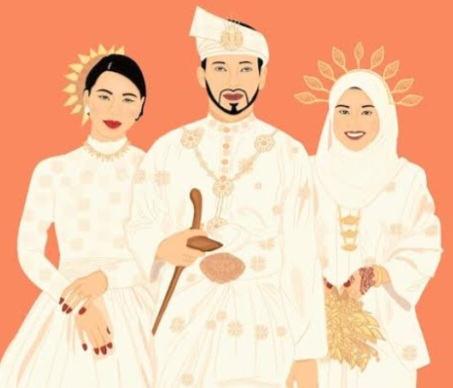In today’s world, where gender equality and monogamy are championed, an uncomfortable reality often goes unspoken: the demographic imbalance between men and women.
As it stands, women significantly outnumber men, leading to a growing number of women unable to find suitable partners.
This discrepancy raises a provocative question: could polygamy be a solution to the marriage dilemma?For centuries, polygamy has been a practiced and accepted form of marriage in many cultures. It provided a practical solution in societies where wars, diseases, and other factors led to a shortage of men.
However, with the advent of Western ideals and modernization, polygamy has been largely stigmatized and abandoned in favor of monogamy.
Yet, the demographic reality persists, and it may be time to reconsider the potential benefits of polygamous unions in addressing the current marriage imbalance.
Firstly, let’s examine the numbers. In many regions across the globe, the ratio of women to men is skewed. This disparity is particularly pronounced in certain age groups and regions, leading to a surplus of women in the marriage market.
This imbalance is not just a statistical anomaly; it has real-world implications for millions of women who struggle to find life partners.
While education and career opportunities have empowered women in unprecedented ways, the biological and social desire for companionship remains a significant aspect of life for many.Polygamy, when consensual and regulated, could provide a viable solution.
In societies where this practice is accepted, it can offer a practical approach to ensuring that more women have the opportunity to marry and form families.
This is not to suggest that polygamy is a panacea for all societal issues, nor that it should be imposed on those who do not wish to participate.
However, in the context of a significant gender imbalance, it presents an option worth considering.One of the primary concerns surrounding polygamy is the potential for exploitation and abuse.
However, with proper legal frameworks and protections in place, these risks can be mitigated.
Just as monogamous marriages can be subject to abuse and inequality, polygamous unions can be structured to ensure the rights and well-being of all parties involved.
Ensuring that polygamous marriages are entered into voluntarily and with full consent is crucial to addressing ethical concerns.
Moreover, embracing polygamy could also challenge and transform traditional gender roles. In a society where women significantly outnumber men, polygamous arrangements could shift the dynamics of marriage, offering women more power and influence within these unions.
This could foster more equitable and balanced relationships, where the focus is on mutual support and cooperation rather than competition and jealousy.It is also essential to recognize that not all men would choose to have multiple wives, even if the option were available.
Polygamy would likely appeal to a minority, meaning that monogamous marriages would remain the norm for the majority. The introduction of polygamy as a socially acceptable option could alleviate some of the pressure and competition in the marriage market, creating a more balanced and inclusive environment for all.In conclusion, the demographic imbalance between men and women presents a significant challenge for many women seeking marriage.
While polygamy is a controversial and complex topic, it offers a potential solution to this dilemma. By reconsidering and reevaluating our societal norms and embracing a more inclusive approach to marriage, we can address the needs and desires of a greater portion of the population.
Polygamy, when approached with care, consent, and regulation, could be a step toward creating a more balanced and equitable society.




